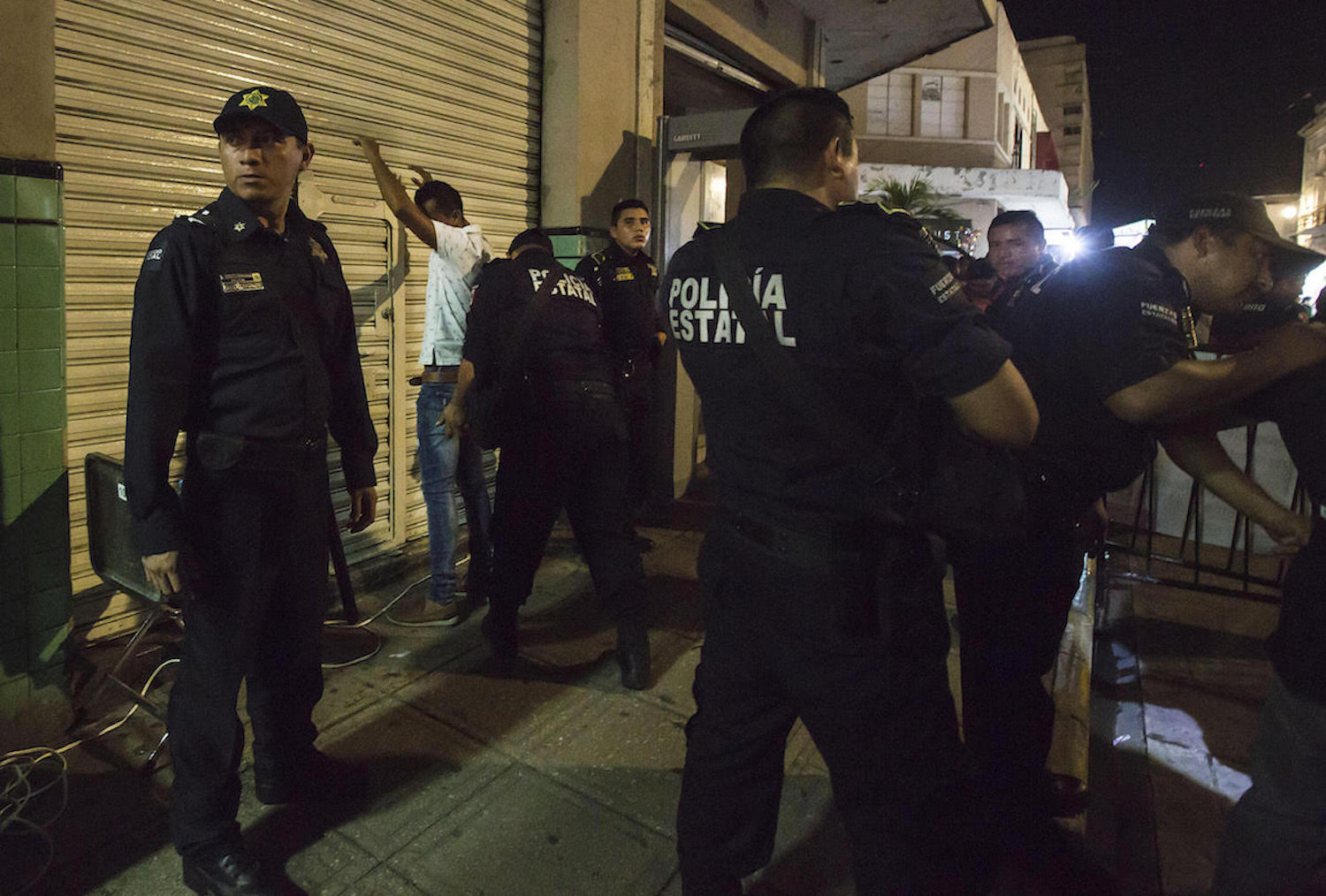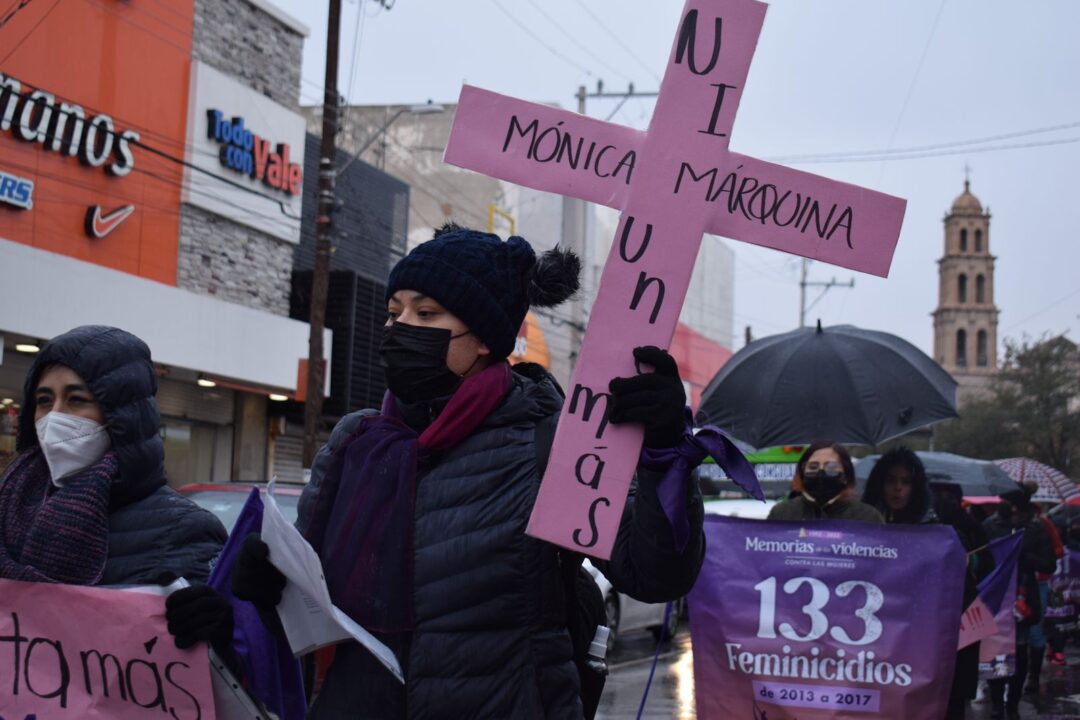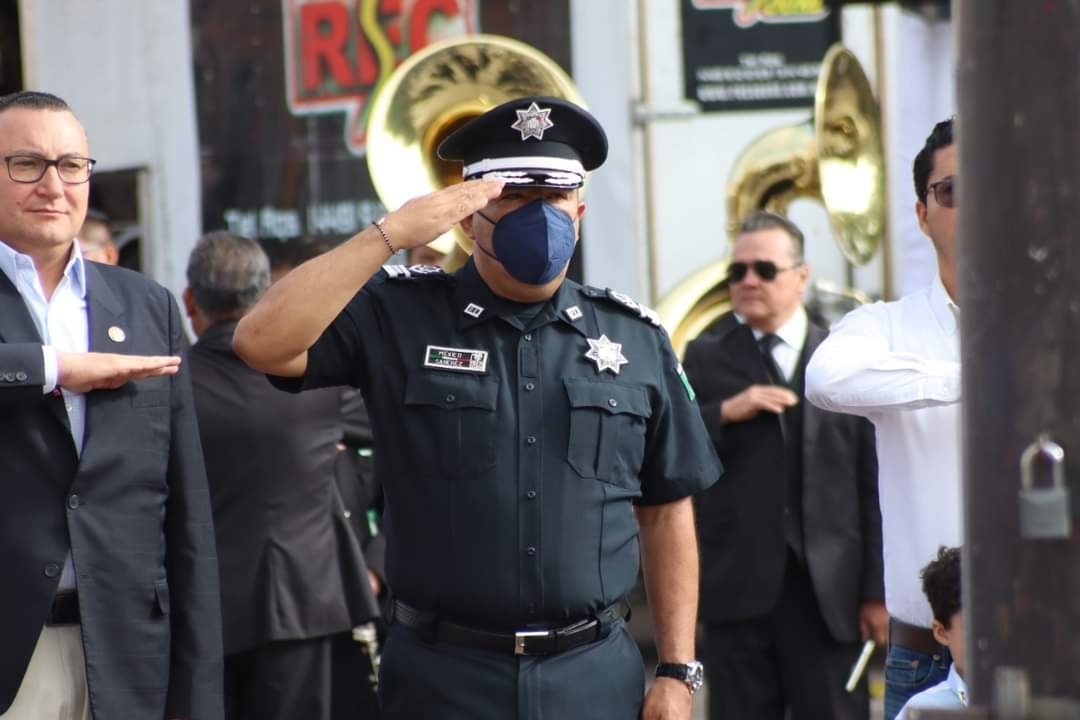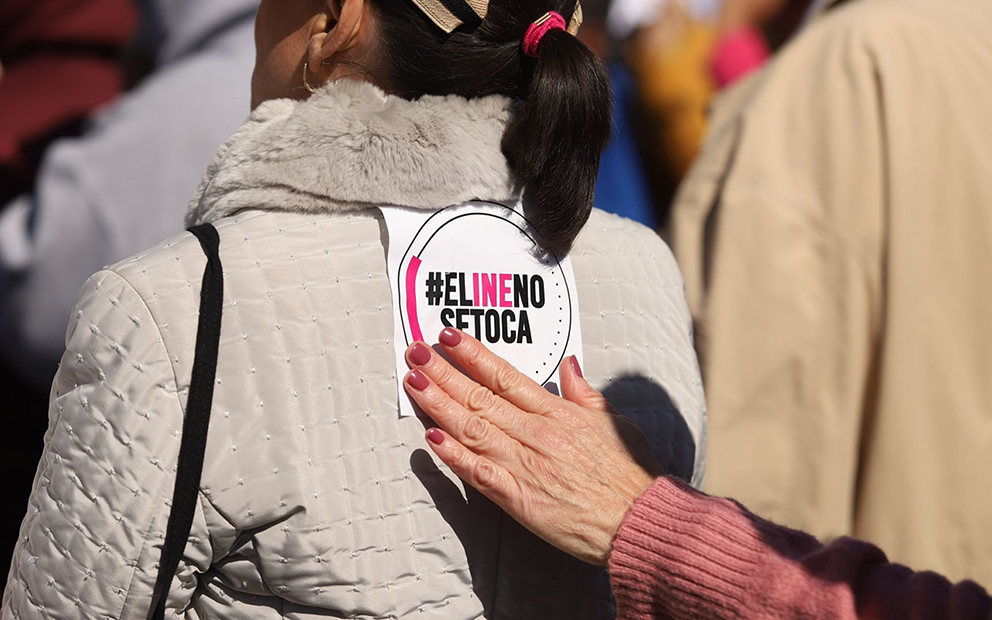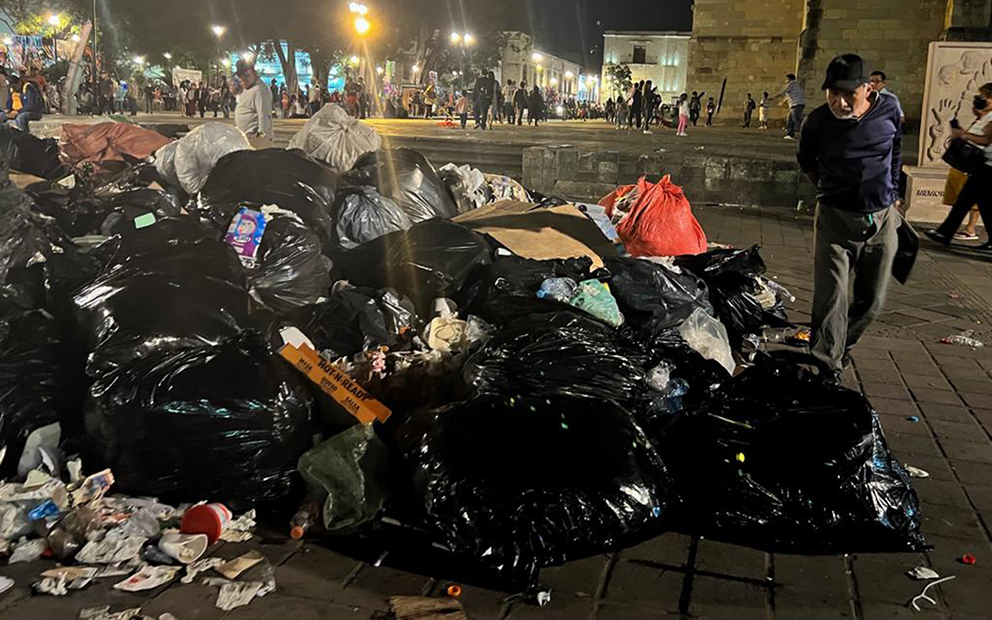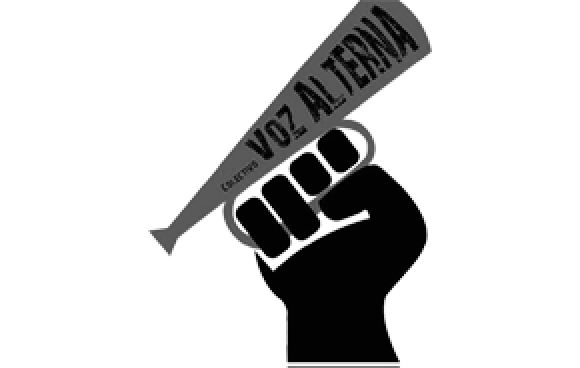Police in Tixkokob beat Alexis until they broke his jaw. A man named Manuel accused the Valladolid police department of cutting of his hand. These are examples of police abuse and rights violations in the state of Yucatán, the safest in México.
Text by Herbeth Escalante, originally published August 28, 2022.
Photo by Archivo Herbert
Translation by Dawn Marie Paley for Pie de Pagina in English
MÉRIDA, YUCATÁN—Alexis Polanco Miam was detained by municipal police in Tixkokob after he was in a motorcycle accident on the highway towards Nolo. The reason he was arrested isn’t clear, nor why officers beat him until breaking his jaw and his right cheekbone.
The 25 year old youth was a victim of police violence in Yucatán, the state that’s considered the safest in México due to low levels of crimes. But it’s also a state where police violate human rights and commit torture.
“I can’t deal with the pain of my broken jaw, I can’t eat, and if I do it’s very painful because the bone is broken,” said Polanco Miam, speaking in his home where he is resting after surgery in the Ignacio García Tellez T1 Hospital, run by the Mexican Social Security Instute (IMSS) in Mérida. “I’m coming up on a month of pure pain and I can’t take it anymore.”
Polanco Miam is a construction worker, but since he was attacked by police in Tixkokob he hasn’t been able to work. This has impacted his family, which lives from day to day. In fact, his parents had to take out a loan to cover his medical expenses and to travel from Tixkokob to Mérida for medical attention.
The abuses took place August 6th, when Polanco Miam was brought to the public jail and, regardless of his injuries, he has yet to have surgery. He doesn’t know what to do, because his pain has increased in various parts of his head and his left eye, and he has constant nosebleeds due to the fractures.
His mother, Rosa María Miam, said that when she learned of the arrest of her son, she went to see him in jail. She noticed he was only wearing underwear, and apparantly, he was in good health. She told the commander that she didn’t have the money to free him or to retrieve his motorcycle. They were asking for $4000 pesos (approximately US$200), she said she’d come back for him later.
“Within a few hours the police went to my house to ask me to go and get Alexis because he was really out of it, and when I got there I saw that he’d been beaten. I asked the commander what they had done, and he just told me they didn’t know what happened, that maybe he had hit himself against the bars of the cell. He wasn’t like that when I went to visit, it was the police who beat him.
Rosa María Miam, Alexis’ mother
Given the seroiusness of the bruises on his face, Rosa María and her husband found an ambulance to take him to a hospital in Mérida. During the entire trip, the youth was spitting up blood and having trouble breathing.
“At first they didn’t want to tell us what happened, I think the police threatened him,” she said. “After three days in the hospital, and at my husband’s insistence, Alexis confessed that the police had given him a savage beating.”
Nationally, Yucatán is considered a ‘paradise’ because it leads in national security statistics. Government authorities consider it the safest state in México.
According to the Executive Secretary of the National System of Public Security (SESNSP), between January and May of this year, Yucatán had the lowest crime rate nationally, with 74.21 crimes per 100,000 residents. That’s nine times less than the national average, with is 677.09.
In addition, as in previous years, Yucatán has the lowest homicide rate in the country, at 0.78 cases per 100,000, which is 10 times less than the national average of 8.24.
But what official numbers don’t reveal is how state and municipal police are accused of committing all types of crimes against the population, from arbitrary detentions to torture and even homicides.
Indignación, a non-governmental organization, revealed that between 2019 and 2021, 965 complaints about torture were filed with the Attourney General of Yucatán (FGE). The organization called this number alarming. It shows that the state is in the midst of a human rights crisis it is trying to hide.
For it’s part, the State Human Rights Commission (CODHEY) calculates that in the last 18 months it has opened 10 complaints of torture committed by members of Yucatán’s police forces.
Police accused of cutting off a man’s hand
Alexis is not the only victim of police violence in Yucatán. A few days ago a man named Manuel “N” had his hand cut off as a punishment for robbery. He has directly accused police officers from the municipality of Valladolid.
In the first statements he made to CODHEY from the hospital where he is receiving care, he said he was arrested by police who took him to the hills to punish him, and they cut off his extremity. He was able to escape, he said, and he made it to the nearby municipality of Chemax, where he was found on the side of road, bleeding out.
Miguel Óscar Sabido Santana, Yucatán’s ombudsman, declared the case as extreme and said it is being investigated as torture. He said nothing like this had previously occured in Yucatán, and the accusation has drawn more attention to the actions of municipal police.
CODHEY made a complaint to the FGE and requested information from the Valladolid police as well as the police in Chemax, as well as from the Valladolid hospital, so that doctors can establish the possible causes of the amputation. To date, no one has been detained for the crime.
“It’s something that’s never happened, it hadn’t happened in many years, it’s very serious, reproachable and unfortunate, why is shy we have to do everything possble to arrive at the full truth. We’re taking the complaint and what was said by the impacted man seriously, because we must believe the victims of human rights violations.”
Miguel Óscar Sabido Santana, Yucatán’s state human rights commissioner
Sabido Santana said that from 2021 to today, there are 10 complaints open that were classified as torture. In these investigations, they have sought the assistance of investigators from the National Human Rights Commission (CNDH) so that they can apply the Istanbul protocols.
He confessed that the CODHEY doesn’t have enough specialized personnel to be able to deal with crimes against humanity, but that they are undergoing training.
“We don’t have enough investigators, which is why we are training more so that they can do analysis and build the case file for each complaint in the most complete way possible, so that these crimes can be classified as what they are: torture,” said Sabido Santana.
In April, Yucatán’s Congress approved a law that seeks to strengthen state institutions vis a vis the prevention, investigation and sanctions against torture and other cruel, inhumane, or degrading treatments committed by state security forces.
The initiative was presented by Gaspar Quintal Parra, a congressperson who is the president of the Justice and Public Security Commission in Yucatán’s legislature. He said it is unfortunate that these types of violent crimes continue to be carried out by those who are supposed to be looking after the population and respecting the law.
“There’s still a lot of deficiencies in some of the municipal police forces with regards to control protocols, it’s very unfortunate that acts like those that took place in Tixkokob and Valladolid are happening in Yucatán,” he said. “Those who were responsible must be punished, and efforts must be made to avoid similar cases in the future.”
Violence and impunity for the most vulnerable
Jorge Fernández Mendiburu, a lawyer and activist with Indignación, says the crisis of human rights violations committed by police in Yucatán isn’t something new. Rather, most of the complaints that are made remain in impunity, because the victims belong to socially vulnerable groups. That’s why practices like torture continue to take place.
He said that even though there have been multiple recommendations made by international human rights organizations that were meant to improve public policy with regards to police conduct, it seems like Yucatán authorities, at the municipal and state levels, prefer to ignore these violations.
“Impunity generates the repetition of human rights violations, and police departments rely on impunity in order to carry out these actions against the population over and over, and especially against the most vulnerable,” said Fernández Mendiburu.
The difference, he said, is that now there are more media and technologies to document abuses, as well as social networks where crimes being committed by police are being shared with the rest of society, as are their violent practices.
Fernández Mendiburu said that these events are not isolated, rather, they are constant and systematic and sometimes end in even more serious crimes, like homicides. He said that if there’s impunity in Mérida, in smaller localities the situation is even worse.
“Violence isn’t just when organized crime kills people, as happens in other parts of country. There are other facets and faces which are not taken into account when the government and institutions are analyzing the best places to live. Of course Yucatán is a good place to live, but only for certain sectors of the population.”
Jorge Fernández Mendiburu, Indignación.
Fernández Mendiburu says there are other violences in Yucatán, like displacement, racism, discrimination based on gender and of course, police violence. Saying that “nothing happens” in Yucatán is an illusion. It’s repeating the idea of a safe paradise.
“We’re not living the same levels of killings as other states, but there is systematic violence in Yucatán, and part of the violence is committed by police forces, and its destined at people who are in a socially or economically vulnerable state,” he said. “Until police actions start to touch the upper class, the authorities won’t recognize that there is violence.”
Click here to sign up for Pie de Página’s bi-weekly English newsletter.
Ayúdanos a sostener un periodismo ético y responsable, que sirva para construir mejores sociedades. Patrocina una historia y forma parte de nuestra comunidad.
Dona

